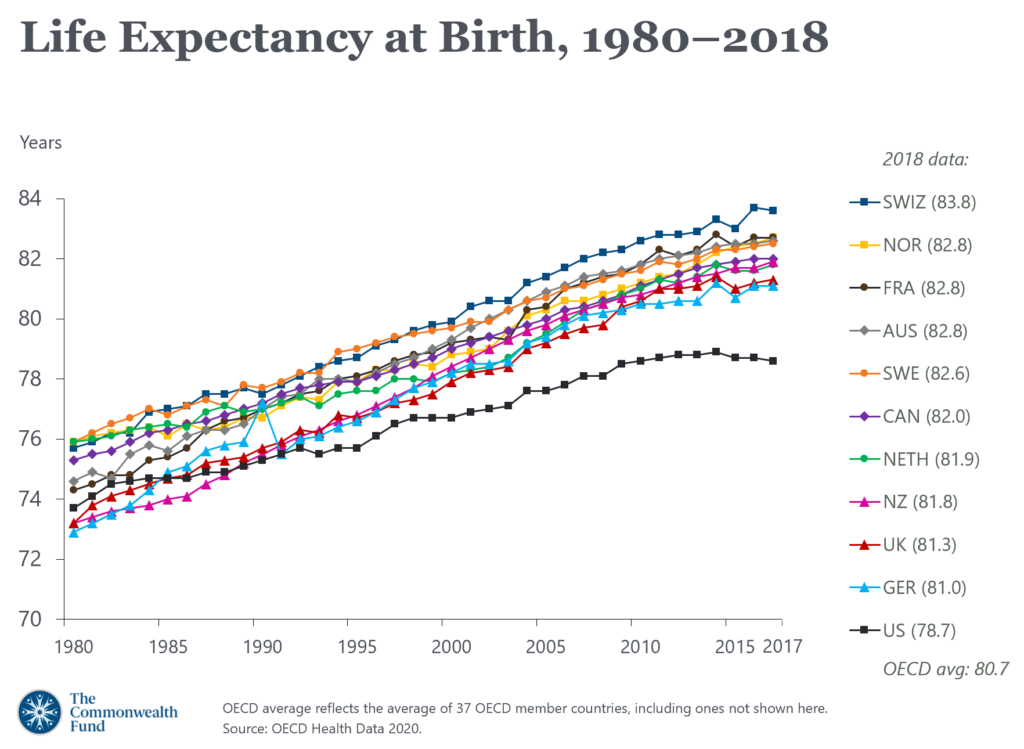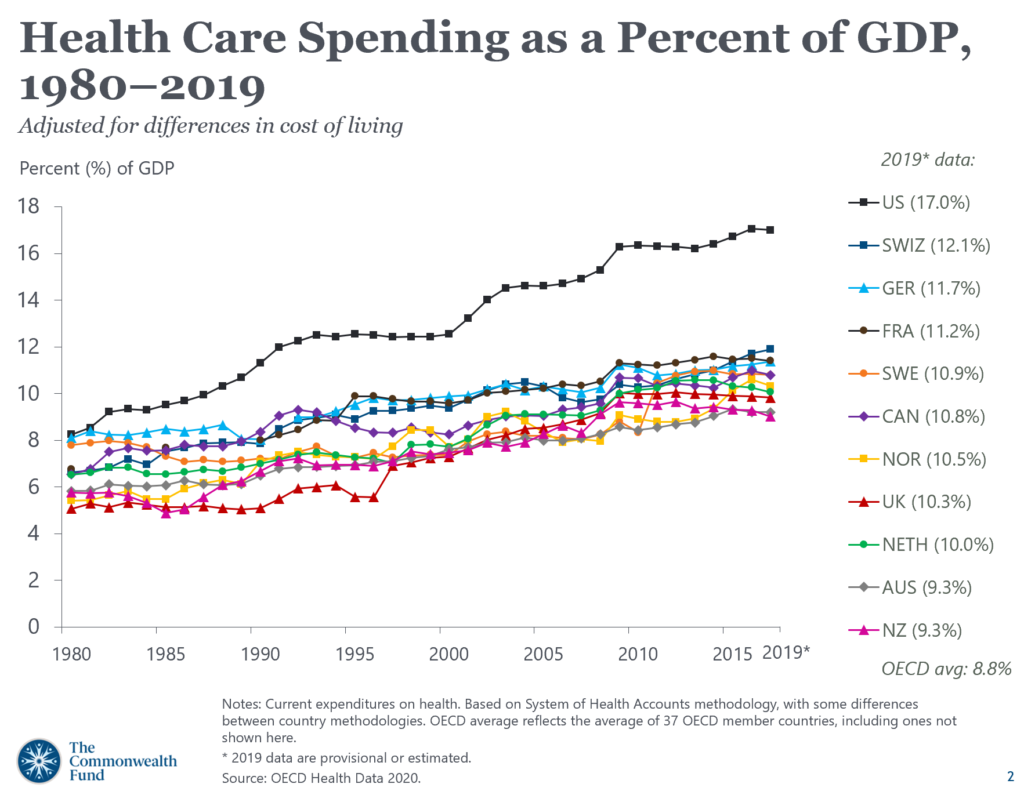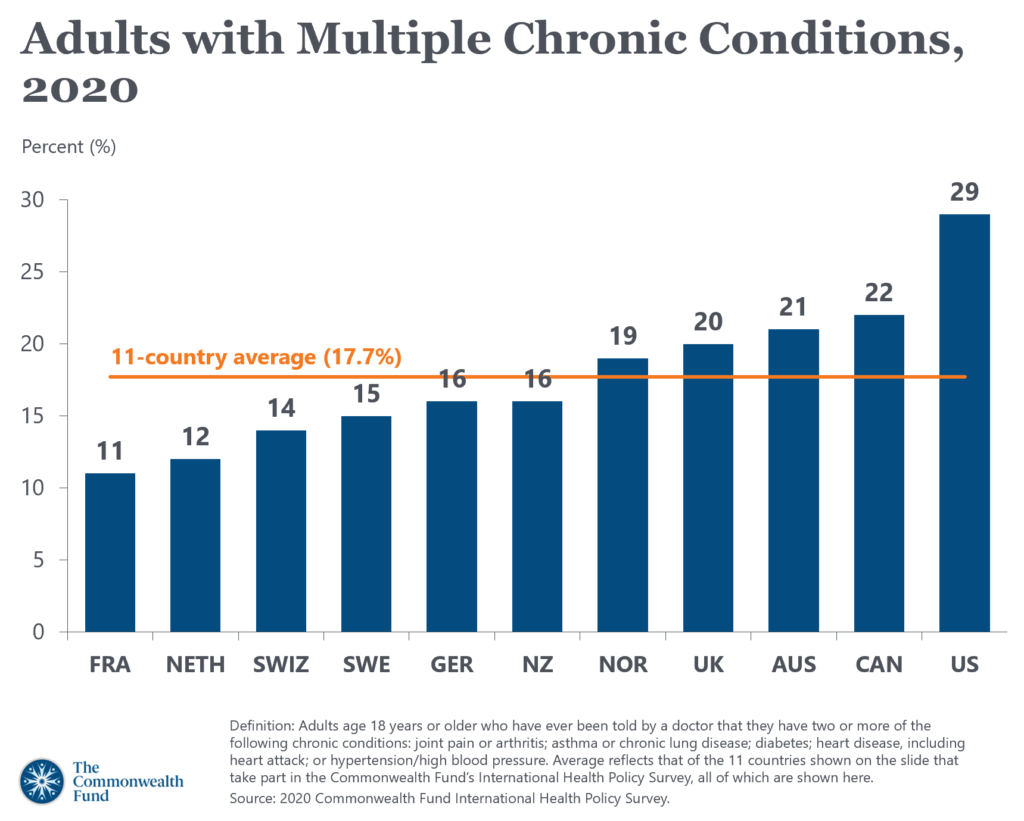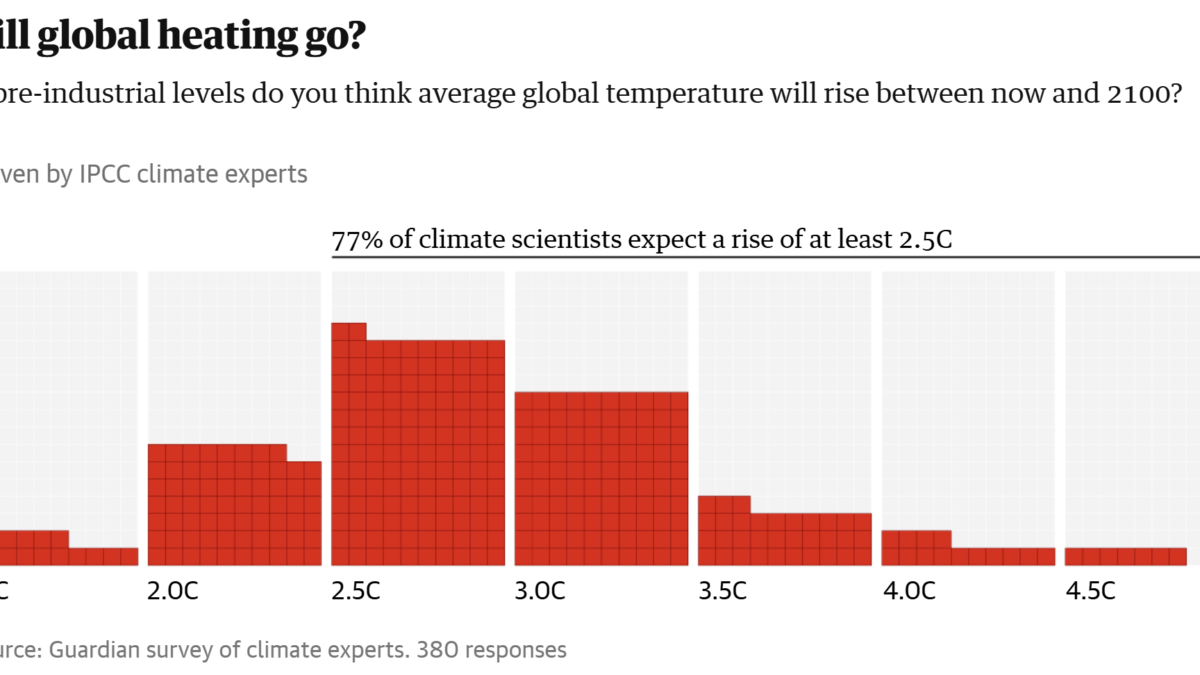2020 report: U.S. citizens pay more for health care than any other OECD nation – But they have decreasing life expectancy, highest suicide rate, most chronic health conditions, and highest obesity rate

By Roosa Tikkanen and Katharine Fields
25 February 2021
(The Commonwealth Fund) – International comparisons of health care systems offer valuable tools to health ministers, policymakers, and academics wishing to evaluate the performance of their country’s system. In this chartbook [ppt, pdf], we use data collected by the Organization for Economic Cooperation and Development (OECD) to compare health care systems and performance on a range of topics, including spending, hospitals, physicians, pharmaceuticals, prevention, mortality, quality and safety, and prices. We present data across eleven industrialized countries: Australia, Canada, France, Germany, the Netherlands, New Zealand, Norway, Sweden, Switzerland, the United Kingdom, and the United States. Whenever possible, we also present the median value of all 37 members of the OECD.

The Organization for Economic Cooperation and Development (OECD) is an international organization representing 37 industrialized countries that share a commitment to democracy and a market economy. The OECD produces reports and data on a wide range of economic and social issues, including the OECD Health Data series, an annual release of data on various aspects of health and health care in the member countries. Working with statistical offices in each member country, the OECD produces the most accurate and comprehensive international health care data available on its member nations.

Contact
- Reginald D. Williams II, Vice President, International Health Policy and Practice Innovations, rw@cmwf.org


